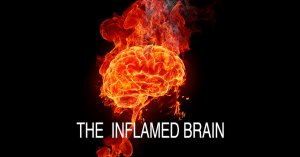Last Updated: October 2025
Many people assume that if they eat a balanced diet, they’re getting all the nutrients their brain needs. Unfortunately, that’s rarely true. Modern agriculture, chronic stress, medications, and digestive dysfunction have created widespread micronutrient deficiencies that silently impair memory, mood, and focus. Even “healthy eaters” can experience brain fog and fatigue if they can’t properly absorb or utilize nutrients at the cellular level.
At The Carroll Institute in Sarasota, Dr. Garland Glenn, DC, PhD, AFMC uses advanced Functional Medicine testing to identify hidden nutrient deficiencies affecting brain function. By restoring nutrient balance and optimizing absorption, patients often experience sharper focus, steadier energy, and improved cognitive performance.
Why Your Brain Needs Micronutrients
Your brain is the hungriest organ in your body. It uses about 20% of your total energy and depends on a steady supply of vitamins, minerals, fatty acids, and amino acids to produce neurotransmitters and generate ATP energy inside neurons. When these nutrients are missing, your brain quite literally runs out of fuel.
Key nutrients such as B vitamins, magnesium, zinc, vitamin D, and omega-3 fatty acids support energy metabolism, cell signaling, and protection from oxidative stress. Without them, neurons become inflamed, mitochondria weaken, and cognitive decline accelerates.
The Modern Causes of Nutrient Deficiency
Even with a balanced diet, nutrient depletion is more common than most realize. This is due to several modern-day factors:
- Soil depletion: Modern farming practices have stripped the soil of essential minerals like magnesium, zinc, and selenium.
- Poor digestion: Low stomach acid, enzyme deficiency, and gut inflammation reduce nutrient absorption.
- Medications: Common drugs such as antacids, statins, and metformin deplete key vitamins and minerals.
- Chronic stress: High cortisol increases magnesium and B-vitamin loss through urine.
- Blood sugar imbalance: Insulin resistance interferes with nutrient uptake into cells.
- Toxin exposure: Heavy metals and pesticides increase the body’s need for antioxidants and detox nutrients.
As a result, even those eating well may experience subtle but significant nutrient deficiencies that directly affect their cognitive and emotional health.
Common Nutrient Deficiencies Linked to Cognitive Decline
- Vitamin B12: Essential for myelin sheath formation and neurotransmitter balance. Deficiency causes memory loss, confusion, and fatigue.
- Vitamin D: Supports brain immune regulation and mood. Low levels are linked to depression and dementia risk.
- Magnesium: Needed for over 300 enzymatic reactions, including those controlling nerve function and relaxation.
- Omega-3 fatty acids (DHA/EPA): Critical for synaptic plasticity and reducing neuroinflammation.
- Zinc and selenium: Key for detoxification and antioxidant protection.
- Iron and copper: Important for oxygen transport and neurotransmitter synthesis—but both must be balanced carefully.
When these nutrients fall below optimal levels, the brain can’t efficiently produce or repair neurons, leading to cognitive fatigue, anxiety, and eventually neurodegeneration.
Functional Medicine Testing for Nutrient Deficiencies
Dr. Glenn utilizes advanced laboratory testing to go far beyond standard blood panels. These tests identify subtle imbalances that may go undetected for years, including:
- Micronutrient panels: Measure intracellular levels of vitamins, minerals, and antioxidants.
- Organic acids testing: Detects nutrient deficiencies through metabolic byproducts in urine.
- Fatty acid analysis: Assesses omega-3 to omega-6 balance for inflammation control.
- Digestive function tests: Reveal malabsorption, dysbiosis, or pancreatic insufficiency.
These insights allow for precise nutrient repletion—targeted to each patient’s unique biochemistry.
Why Food Alone Isn’t Always Enough
While a nutrient-dense diet is essential, many individuals cannot fully absorb or utilize nutrients due to digestive inflammation, low stomach acid, or chronic illness. In these cases, targeted supplementation and gut healing become necessary to restore nutrient sufficiency and brain function.
For example, B12 and iron absorption require adequate stomach acid and healthy gut lining. Magnesium deficiency often persists even with supplementation unless inflammation and insulin resistance are addressed first. This is why gut health and nutrient optimization must be addressed together.
ReCODE and Nutrient Repletion
Within the Bredesen ReCODE Protocol, nutrient repletion is one of the six key pillars for reversing cognitive decline. Each patient’s nutrient status is analyzed and corrected to optimize mitochondrial energy, neurotransmitter synthesis, and antioxidant defense. Many patients report improvements in clarity, energy, and mood within weeks of personalized nutrient restoration.
Restoring Brain Function from the Inside Out
If you’re experiencing fatigue, brain fog, or mood changes, your symptoms may not be “just aging”—they may be a signal that your brain is running low on essential nutrients. Identifying and addressing these deficiencies is one of the most effective ways to restore clarity, focus, and vitality.
Book a Discovery Call with The Carroll Institute to uncover the nutrient imbalances that could be affecting your brain—and start your personalized recovery plan today.
Sources
- Reversal of Cognitive Decline — NIH (2014)
- Nutritional Deficiencies and Cognitive Decline — NIH (2006)
- Vitamin D and Brain Health — NIH (2018)
Medically reviewed by Dr. Garland Glenn, DC, PhD, AFMC (Advanced Functional Medicine Clinician)
The Carroll Institute — Sarasota, FL
Learn more about Dr. Glenn’s background and credentials: About Dr. Garland Glenn
This content is for educational purposes only and does not replace personalized medical advice.

Dr. Garland Glenn, DC, PhD, IFM, AFMC
Founder & Clinical Director, The Carroll Institute — Sarasota, FL
Dr. Garland Glenn is a board-certified chiropractic physician and functional medicine practitioner specializing in cognitive health, neurodegeneration, and root-cause medicine. Certified as an AFMC (Advanced Functional Medicine Clinician) and Institute for Functional Medicine (IFM) trained, he has also completed over 500 hours of advanced training in Functional Neurology under Dr. Ted Carrick, founder of the Carrick Institute.
At The Carroll Institute, Dr. Glenn leads Sarasota’s only ReCODE-certified Functional Neurology program, helping patients reverse or prevent cognitive decline through the Bredesen ReCODE Protocol, neuroplasticity exercises, and personalized functional medicine care.
Learn more about his background and approach at About Dr. Garland Glenn.
– schedule now –
free discovery call
To help you get started, we offer a free 20-minute Discovery Phone Consultation. During this call, you will be able to talk with one of our Certified Brain Health Coaches about what going on with you or your loved one and find out if we can help. Please review our FAQs prior to scheduling your free call. We look forward to talking with you soon and helping you Save Your Brain.
(yes, it’s totally free!)
ReCODE® is a registered program developed by Dr. Dale Bredesen and licensed through Apollo Health. Dr. Garland Glenn is a certified ReCODE practitioner.



